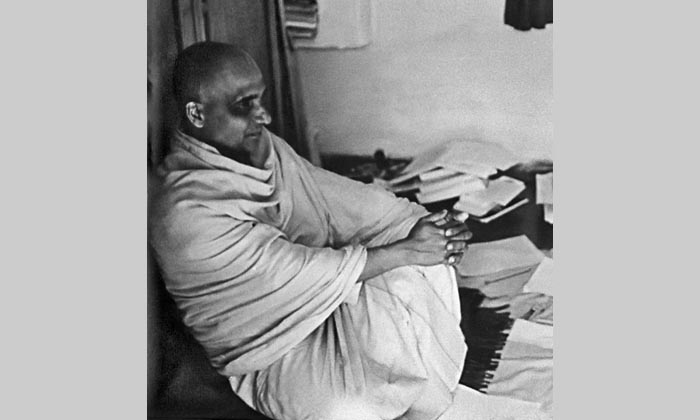Sri Krishna’s Brindavanam and Dvarka Lilas : 4. Glory of Srimad Maha Bhagavatam : Swami Krishnananda
01/02/2019
Sri Krishna’s Brindavanam and Dvarka Lilas : 4
The contrary nature that is so remarkably seen in Bhagavan Sri Krishna cannot be seen in anyone else. Whatever he did, and whatever he said, had this characteristic of a blending of contrary features which are not easily reconcilable. Even the Bhagavadgita that he taught is of such a nature: it is a winding argument which leads nowhere, if it is read carelessly. Throughout his life, he played this role of wonderful activity which was justifiable from his point of view, but nobody could understand what he was up to.
The first part of the Tenth Skandha of the Srimad Bhagavata occupies itself with these pranks of the child Krishna, and while every action of his was superhuman, he made it still worse by engaging himself in a dramatic performance called the Rasa Lila, which cannot be seen in the life of any other person in the world. Here again we have a mystery that transcends human reason because there are no men and women before God. The prejudices of the duality of the sexes, and the additional prejudice of attachment to human predilections and rules and regulations, have to be broken down in the Divinity that manifests finally.
Human laws and regulations cannot take us to God. These rules of man can take us only to a human realm, because the constitution of God’s government is not a human constitution. It is an inclusiveness to which human nature is not accustomed. All our laws and regulations are partial in their nature and are valid for certain given conditions, but they are not valid for all times. This is the defect in man-made laws: they are good for some times, but they are not good for other times. But the law of God is good for all times. Once the enactment is made, it does not require any amendment. In human parliaments, circumstances change, and therefore, we change the laws; but God has no such circumstances where He has to change the laws. In the Isavasya Upanishad it is said: yathatathyato’rthan vyadadhac chasvatibhyas samabhya? (Isa 8). An ordinance was enacted in the parliament of God and it is valid for all time to come, till the end of creation, because it was so perfectly visualised, taking into consideration every eventuality or possibility in the history of creation.
In a similar manner, the deportment of Sri Krishna multiplying himself into many in this Rasa Dance makes him a person not human in his nature, because no human being can become manifold. Therefore, our judgment of Sri Krishna cannot be based upon human values, as a human being cannot multiply himself. A human being cannot lift a mountain or swallow forest fire—all of which he did, to the consternation of his associates. The superhuman nature of this child, which is seen right from the beginning, frees him from the human association of any kind of limited interpretation of his activities.
To be continued ...





Comments
Post a Comment